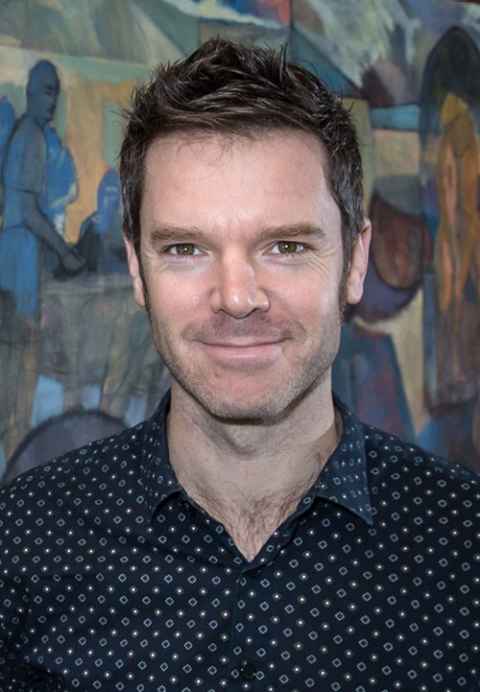Exploitation of migrant workers: an emotional issue
31 July 2023
The emotional component of migrant worker exploitation in New Zealand has come to light as part of a larger project on the issue at the University of Auckland.

How emotion contributes to the plight of temporary migrants on study and work visas in Aotearoa New Zealand is the focus of a recent publication by Professor Francis Collins and Associate Professor Christina Stringer from the University of Auckland.
As part of government-contracted work, Collins, a sociologist and geographer in the Faculty of Arts and Stringer, director for the Centre for Research on Modern Slavery at the Business School, discovered that the emotions of migrant workers in insecure and unfree situations contribute to workplace exploitation in three key areas: inducement into exploitation, entrapment and the emotional maintenance of exploitation.
Their findings were drawn from numerous interviews with migrants from a variety of countries who experienced workplace exploitation in a context where the rapid growth in temporary migration has been associated with growing evidence of labour market abuse, says Collins.
“The exploitation of migrants is not simply a matter of non-compliant employment practices for a higher level of profit or to undercut competitors, although those things are all part of the picture; there are a whole range of influences on exploitation.”
We found that employers at some workplaces manipulated these workers’ feelings of not being free by carrying out non-compliant practices and in some cases, outright criminality.
The links between exploitation and ‘unfreedom’, or the various ways of not being free at work and how people get drawn into workplace exploitation when they clearly don’t want to be underpaid or mistreated, became of particular interest, he says.
“If you’re in a job where you feel exploited, why not just leave? But of course, people can’t leave in these situations because they’re not really free, and most importantly they don’t feel free.”
“This is because for many temporary migrants, their visas are tied to their employers,” says Stringer.
Although she says it is possible to apply for exemptions from Immigration New Zealand.
“We found that employers at some workplaces manipulated these workers’ feelings of not being free by carrying out non-compliant practices and in some cases, outright criminality.”

Collins says employers maintained control by stressing that they themselves were “citizens” and therefore had influence and could do things like call lawyers.
“They also suggested to these workers that they had ways of watching them, both at work and outside of it, making them feel ‘surveilled’.”
Stringer says some migrants’ employers put them under CCTV surveillance while at work and then observed them from home.
“One employer called his worker, asking him what he had been doing and who he had been talking to on the phone.”
For the self-selected, interview-based study, the authors spoke to a diverse population of migrant workers, most of whom were on post-study working visas, meaning they had already invested in study here with a view to long-term employment and residency.
“The people we spoke were in many cases, young people with prior training and qualifications who were looking for other opportunities,” says Collins.
“Their decision to come here in the first place was heavily promoted by migration agents and the New Zealand government, and had often meant borrowing money, leaving them needing to address immediate costs as well as costs already incurred.”

So what’s the solution to a better life for these migrants?
“Our study focused on the migration system overall, and in particular, the rules government has set around work visas,” says Collins.
“You can’t resolve this if you only see it as individual people making economic choices. The tendency then will be to view migrants making good or bad choices and employers as being either good or bad.
“A starting point for a much more effective response is recognising the interrelationship between all these different factors.”
Not requiring temporary migrants to have their visas linked to a particular place of work would be a great start, the authors believe.
Another critical, and one would think obvious factor, is the recognition of migrants as human, which brings in the emotional perspective, says Collins.
“Freedom for these people is established within the bounds of rules and controls of various kinds. But how free are they if they’re tied to these controls?”
He says immigration authorities have kept controls in place to manage the numbers of migrants in particular occupations and control labour market supply.
“But because these controls reduce the rights of migrant workers, they also erode labour market conditions for everyone.”
He says the New Zealand Productivity Commission made a similar point in their inquiry into immigration settings, suggesting the government needed to remove the employer link on visas to reduce workplace exploitation.
This research also highlights the need to move beyond an immigration system based on viewing migrants only for their economic value and only as potential citizens if are perceived to be highly skilled, says Collins.
“Whatever level of immigration New Zealand has, improving the rights of migrants at work is a key step towards enhanced social justice and inclusion.”
The Trauma of exploitation: Emotional geographies of temporary migration and workplace unfreedom by Francis L Collins and Christina Stringer is published in Sage Journals.
Media contact
Julianne Evans | Media adviser
M: 027 562 5868
E: julianne.evans@auckland.ac.nz